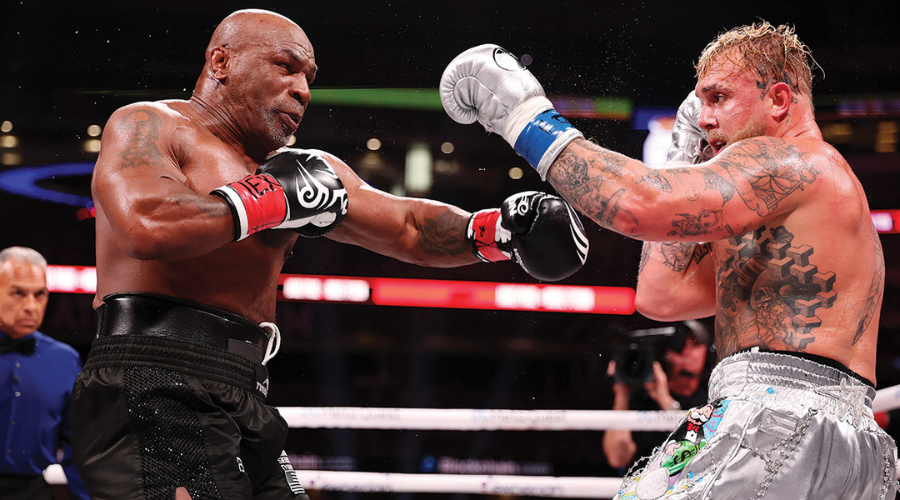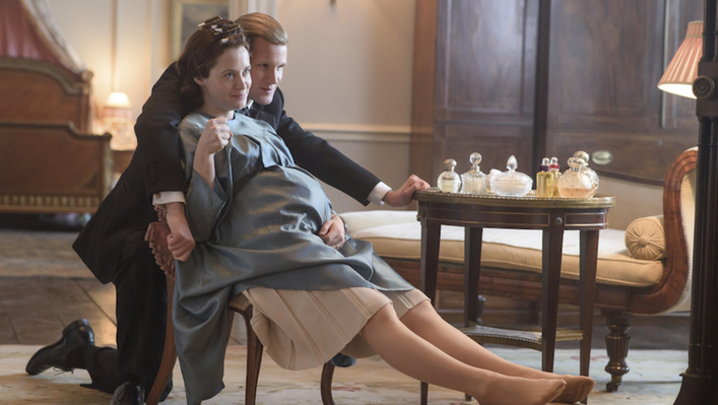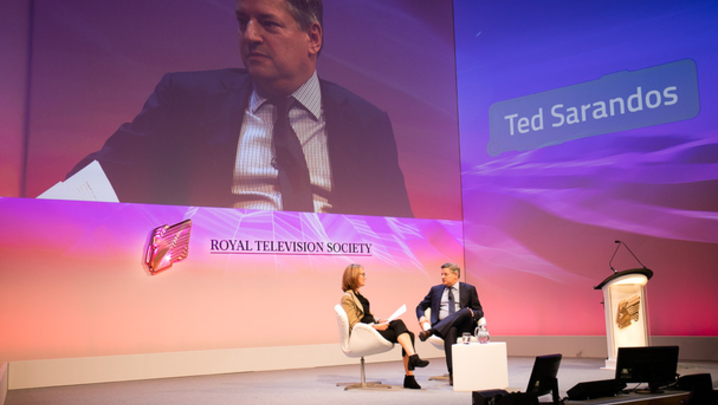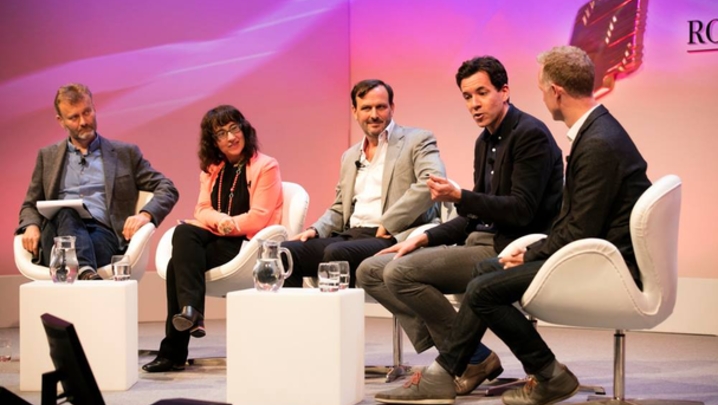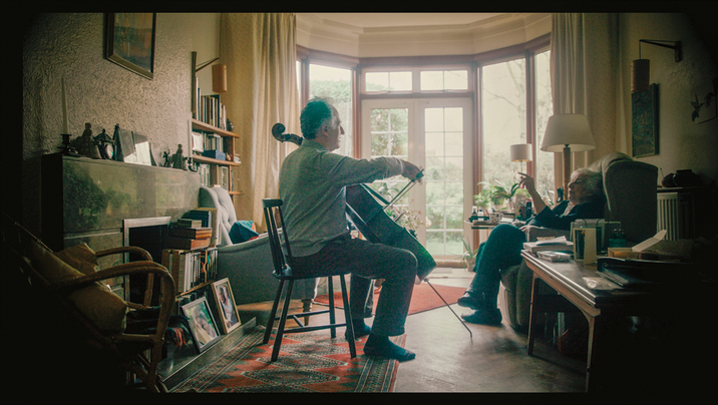Whether it’s athletics, football or boxing, young fans now want more than just the main event. Our RTS panel asked how the industry can meet that challenge
More than 24 million people tuned into ITV and the BBC to watch Spain beat England in the Euro 2024 final in July. A month later, Warner Bros. Discovery streamed 3,800 hours of live Olympic competition, consumed by UK and European audiences to the tune of 7 billion minutes.
Clearly, sport still pulls in huge audiences, whether broadcast on linear TV or streamed on platforms such as Discovery+ and Max. But rather than resting on their laurels, platforms are looking to attract the next generation of fans via social media and YouTube.
“Linear channels are important for a certain audience who like to sit down and watch traditional television… it’s here to stay for a long time,” said Scott Young, Group Senior Vice President, Content, Production and Business Operations, Warner Bros. Discovery Sports, Europe, who was speaking at an RTS event in November entitled “Next-gen sports fans: new trends shaping the future of sports viewing”.
But Young said the Paris Olympics was a “turning point” in sports broadcasting, marked by huge engagement on social media, with competitors allowed to post on their personal accounts from the athletes’ village and venues for the first time. “The story is not just the athlete competing,” he said. “We saw them go on social media and share their passion for the games. We saw what they had for breakfast, who they were talking to, who they ran into in the athletes’ village.”
Young argued that, having got to know the athletes via social media and whetted their appetite for sport, the younger digital generation would now watch the live coverage to see them compete for medals.
Digital production company After Party Studios makes Sky Sports’ series Scenes, which is available on its Premier League YouTube channel. It features YouTubers Specs Gonzalez and Morf, who are given behind-the-scenes access at grounds to offer an alternative “yoof” perspective on the football. Managing Director Joshua Barnett recalled: “[Sky Sports] came to us last year with a brief for hitting a next-gen audience… last season we hit 72 million views across the series.”
“People want to connect on a human level,” said Claire Valoti, a former Snapchat executive and now Non-Executive Director at sport technology and data company Genius Sport.
Authenticity was key, she said: “During Paris, I was obsessed with [the social media of] Simone Biles because my household loves gymnastics. It was just her, being normal – there was a connection. It’s another element of fan engagement… to understand a person you’ve put on a pedestal as a human and getting to see their real self.”
Young agreed, adding: “We have told all our on-air talent that we want them to be themselves. Joe Cole and Peter Crouch are our Ant and Dec – our two football pundits get on like a house on fire. When we send them out to do anything together, it’s hilarious. Peter tried to recreate a goal he’d scored – he landed on his head, it really hurt him and [we got] 31 million views.
“It was authentic; Joe is standing there laughing his head off at his mate. That was something you couldn’t possibly create.
“The content that we see catch fire is the stuff where the talent are enjoying themselves. They’re [often] behind the scenes; Rio [Ferdinand] has started to do this in the Champions League matches, where he’ll start live broadcasting from the make-up room at five o’clock, two hours before we go to air.”

Scott Young and Jaydee Dyer
(credit: RTS/Paul Hampartsoumian)
Looking to the future, Young said next-gen fans will want to be told “the whole story” and have “access to everything – they want to be as close to the players as possible”.
As an example, he explained how leading players George Furbank and Finn Russell wore TNT Sports player mics during June’s Premiership Rugby Final, bringing the “raw emotion” of the match to the TV audience.
Young added that live sport was becoming “the meat in the middle”, sandwiched between social media content.
Valoti predicted that content will be increasingly defined by athletes “wanting to take control and [building] a direct relationship with their fans and community. We’re starting to see more of that.”
Sport entertainment, as the Tyson-Paul fight (see below) recently proved, is becoming big business. A charity football match – scheduled for March 2025 and featuring British YouTube group the Sidemen – sold out the 90,000-seater Wembley Stadium within just three hours of tickets going on sale in November.
The 2023 match, held at West Ham’s London Stadium, also with the Sidemen, had 2.6 million live concurrent streams of the action and 30 million catch-up views within 24 hours.
“Yes, the football on the pitch is slightly questionable but we capture it in all its glory and I think it brings in a new generation,” said Barnett. “It fuels people to love live sport.”
Tyson vs Paul: was it sport, entertainment... or neither?
The exhibition fight between YouTuber Jake Paul and boxing legend Mike Tyson in November attracted 108 million live viewers globally on Netflix, making it the most-streamed sporting event ever. The contest in the ring, however, was both a dismal spectacle and a mismatch, with 58-year-old Tyson – who has a history of drug and alcohol abuse as well as mental health problems – no match for Paul, who won the match on a unanimous points decision.
Scott Young ‘It was a bit of a gimmick. Mike Tyson is an absolute legend, and to be caught up in that, unfortunately, I don’t think it was fair game… It made a lot of money but I don’t think the result was a surprise to anybody. The intersection of sport and entertainment is where we’re now more closely aligned for an event like that. But Jake Paul was always going to win.’
Joshua Barnett ‘It was a gimmick, you’d have to be a bit of a schmuck to go into that fight not knowing that there’s a contract that says, “You [Tyson] can’t knock him out, you [Paul] can’t knock him out. Make it go the distance, lads, put on a show, [give him a] slap in the weigh-in”. It’s kind of akin to WWE [wrestling]: you still buy into the characters, and you buy into the drama – it’s sport as entertainment. But, man, they’re [generating] views, they’re printing money and they’re entertaining audiences globally.”
Claire Valoti ‘If you think of Logan Paul and his brother [Jake]… they have a very Gen-Z following. So for boxing, even though it was gimmicky, has that brought a new audience of the next-generation into boxing? All in all, I think that’s a really positive thing for the sport, and it has expanded the fan base, so it's a win.'
The RTS National Event, ‘Next-gen sports fans: new trends shaping the future of sports viewing’, was held at the British Museum on 19 November. The host was Warner Bros. Discovery sports presenter Jaydee Dyer and the producers were Kim Chua and Ashling O’Connor. Report by Matthew Bell.

